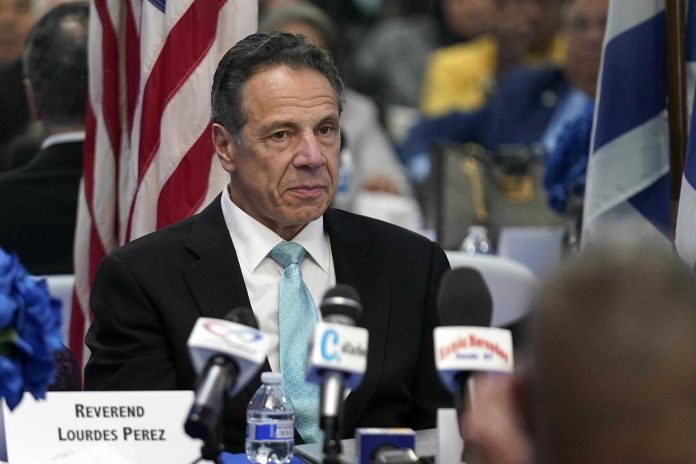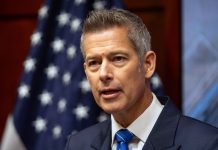
By MICHAEL HILL
Associated Press
Former New York Gov. Andrew Cuomo began testifying Tuesday in a combative congressional subcommittee hearing centered on his handling of the COVID-19 pandemic as the virus began to spread through the state’s nursing homes in 2020.
Members of the Republican-led House Select Subcommittee on the Coronavirus Pandemic released a report ahead of Cuomo’s testimony that accused the Democrat of staging a “cover up” to hide mistakes that endangered nursing home residents.
During the hearing, Cuomo fiercely defended his administration’s actions during the pandemic and said the subcommittee was seeking to turn attention away from former President Donald Trump’s pandemic leadership failures.
Cuomo told the panel that its report “provides no evidence to support Trump’s main allegation, repeated for three years, that New York’s guidance killed thousands in nursing homes. In fact, the report finds no causality whatsoever. Not one death.”
Cuomo resigned from office in August 2021 amid sexual harassment allegations, which he denies.
Cuomo was widely seen as a reassuring figure in the early months of the pandemic, but his reputation suffered after revelations that his administration released an incomplete accounting of the number of deaths at nursing homes and assisted living facilities.
Critics have also zeroed in on a directive issued in March of 2020 that initially barred nursing homes from refusing to accept patients just because they’d had COVID-19.
The order was issued to keep hospitals from becoming overwhelmed with COVID-19 patients who were no longer sick enough to require hospitalization, but needed nursing home care for other conditions and couldn’t simply be discharged or sent home.
More than 9,000 recovering coronavirus patients were released from hospitals into nursing homes under the directive, which rescinded amid speculation that it had accelerated outbreaks.
“Governor, you own this. It’s your name on the letterhead. This is your directive,” said U.S. Rep. Brad Wenstrup, the Ohio Republican who chairs the Select Subcommittee on the Coronavirus Pandemic. “You’re the leader. The buck stops with you.”
There were about 15,000 COVID-19 deaths among long-term care residents in New York, far more than the initial number disclosed.
In a heated exchange with U.S. Rep. Elise Stefanik over nursing home deaths, Stefanik told Cuomo “There are families sitting here. I want you to turn around, look them in the eye and apologize, which you have failed to do. Will you do it?”
Cuomo responded by saying the hearing was not intended to become an exercise in political theater.
The congressional committee said it had determined that Cuomo and his top aides approved the directive and later tried to deflect blame by ordering up an unscientific report concluding that the rescinded March directive likely had little impact on fatalities.
Top former Cuomo administration officials were interviewed as part of the investigation.
Cuomo testified before the subcommittee in June , but it was behind closed doors.
A separate state report commissioned by Cuomo’ successor, Gov. Kathy Hochul, and released this summer found that while the policies on how nursing homes should handle COVID-19 were “rushed and uncoordinated,” they were based on the best understanding of the science at the time.















